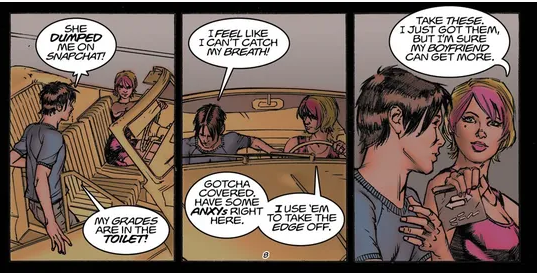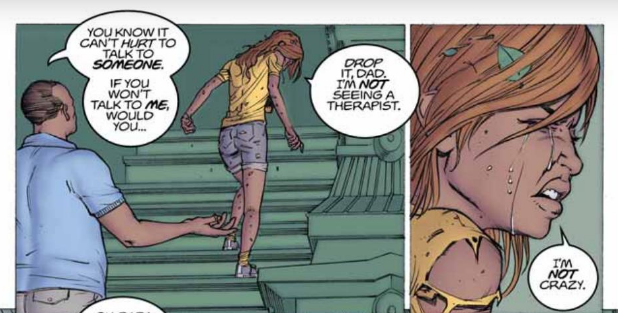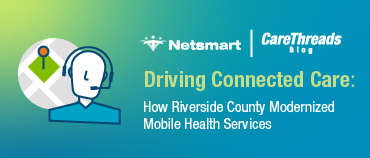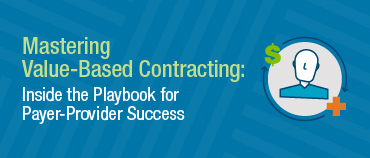As much as entertainment and media trends seem to quickly come and go, there’s one thing that never goes out of style: superheroes. In hopes of capturing teens’ attention while fostering education, Centerstone, a national leader in behavioral health care, recently released its sixth comic book as part of an ongoing series designed to help kids learn about risky behaviors and real-life issues.
The series stars Spark, a teenage superhero who helps her friends and peers work through difficult yet common situations. The comic books focus on mental health, drugs and alcohol, sex and relationships, social media and internet safety, bullying and more. The series includes Spark and the Text Message that Nearly Destroyed Her, Smokescreen: No Time for Bullies, The Sobering Truth, Caught in the Net, and Rising from the Ashes. The comic books aim to reach youth through a platform that is exciting, approachable and relatable.
Centerstone provides a variety of services, including mental health care, addiction treatment and community education in Tennessee, Florida, Illinois, Indiana and Kentucky. The not-for-profit organization is always looking for new and innovative ways to serve their community. Ashleigh Hall, Centerstone grants marketing manager, and the rest of her team were ready to launch something unlike anything they’ve done before.
“I was at a conference with a colleague, and he stumbled upon a booth promoting diversity, where they had a graphic novel about Martin Luther King, Jr.,” Hall said. “He loved the concept and asked if we could create comic books around risky behaviors. And there the idea was born.”
Centerstone used awarded grant funding given to them by the Department of Health and Human Services Office of Population Affairs to launch and maintain the comic book series. The grant consisted of two rounds both lasting five years, and they’re currently at the end of the second five-year run.
“You’ve got to meet kids where they are,” Hall said. “You can’t necessarily expect them to come to you to talk about tough topics in this fast-pace entertainment world they live in. Going to them in the form of media, in this case comic books, and educating them that way is so important.”
Before creating the first comic book, Centerstone staff conducted several student feedback groups in Tennessee. They asked kids about their interest in comic books, what types of paper and illustrations they liked and learned more about the issues they are facing today.
“For our first comic, students were really interested in phone and internet safety,” Hall said. “In addition to talking with kids, we’re also relying on our Centerstone staff—prevention specialists, addiction program managers, crisis experts, etc.—to inform us on any relevant topics.”
After publishing the sixth comic of the series, it’s apparent the books are finding success with their audiences. More than 50,000 comics have been distributed throughout the country.
“I’m proud of our Prevention team’s creativity and its commitment to reaching kids wherever they may be,” Dr. Bob Vero, Centerstone Regional CEO, said. “These comic books are making it easier for students to discuss real life mental health issues right where they are—in a classroom, at a community center among friends or at home with family.”
The comics help bridge the gap between teenagers and adults when it comes to having difficult conversations. If an adult and an adolescent can sit down and talk about what Spark the superhero did, they can take the focus off of the kid, allowing them to learn from the situation and guide them to the correct response.
“We like to call it ‘edutainment’, entertaining while educating teens,” Hall said. “A lot of parents and their teens don’t know how to start the conversation or ask the questions. These comics take the scariness out of an uncomfortable topic in a way that is fun, approachable and easy to understand.”
For example, in the story Spark and the Dangerous Switch, the common challenges of high school students—a breakup and poor grades—lead the main character, Jake, to take an unprescribed pill he thought was harmless but was actually laced with fentanyl. This story can help spark conversations that should be ongoing. Whether it’s a parent, aunt, uncle or coach, adults in teens’ lives are encouraged to be “approachable and receptive,” Hall said.

Each of Centerstone’s comic books includes an education guide. At the end of Spark and the Dangerous Switch, there are statistics from the Centers for Disease Control and Prevention (CDC) and the Substance Abuse and Mental Health Services Administration (SAMHSA) and a list of questions. They aim to spark conversation and critical thinking, while prompting real-life examples the reader can think about whether they’re reading alone or in a classroom, group therapy, or individual counseling. Along with the questions, a variety of resources are included for readers to access if necessary.
“The CDC acknowledges that the earlier teens start using substances, the greater likelihood of substance use issues later in life, so prevention is vital for long-term health," Hall said.
Spark: Rising from the Ashes addresses the crucial topics of depression and suicide prevention among today’s youth. According to SAMHSA, nearly 13% of adolescents ages 12 to 17 had at least one major depressive episode in 2016. The CDC reports that depression rates have risen 63% since 2013, and that for youth from 10 to 24 years old, suicide is the leading cause of death. The comic includes a four-page insert with information about warning signs of suicide and what to do when someone may be at risk as well as details about the National Suicide Prevention Lifeline [(800) 273-TALK].

Haywood County Schools in Brownsville, Tennessee plan to use the comics during Guidance Counselor class sessions.
“Haywood County has many needs,” said Cindy Smith, School Health Coordinator, Haywood County Schools. “Our obesity, domestic violence, suicide, teen pregnancy and STD rates, and excessive alcohol use are all at or above the state level. We need every piece of information we can put into the hands of our youth, starting as early as possible. Centerstone comic books are well done, eye catching, and I think will get and keep the attention of these students. The message in Spark and the Dangerous Switch is excellent, and I can't wait to see the other comic books.”
The goal is to talk—early and often—with teenagers. If you are a parent or guardian of a child, don’t forget, they may not be willing to talk today. That’s okay! Adults can start by opening the door with the comics and see where it goes. You don’t have to be a superhero to let someone know you are there for them, when and where they need it.
Spark and the Dangerous Switch and other installments in the Centerstone Comics series are available free at: www.centerstonecomics.org. Whether you are a parent, educator, mentor or friend, share these books with teens. You are never too old to be a superhero!
Check out the Netsmart CareThreads Podcast featuring Centerstone, where Keith Boushee and Ashleigh Hall take a deeper dive into the Spark comic book series.










.jpg)